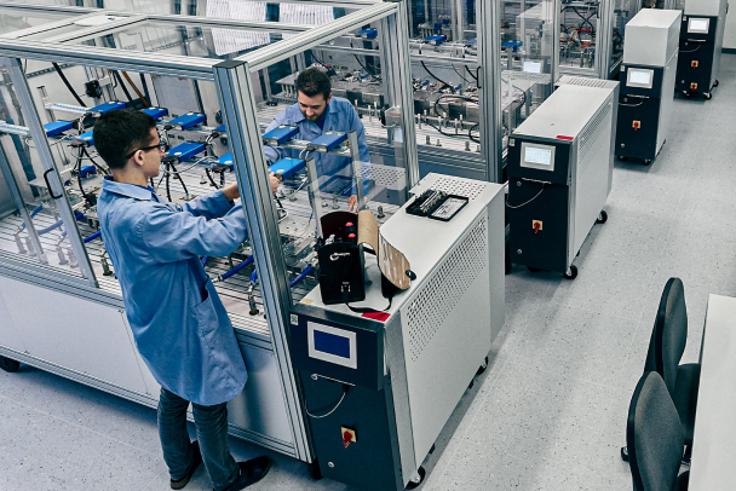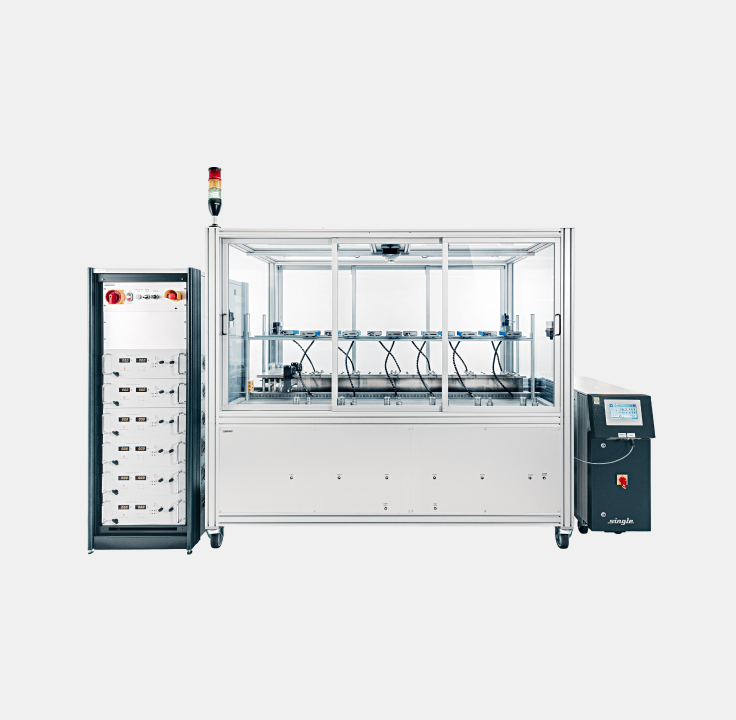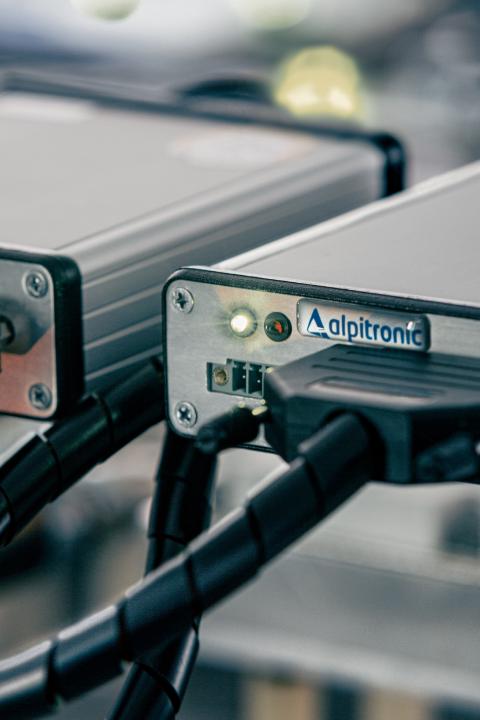Power Cycling
Alpitronic offers state-of-the-art Power Cycling test benches, Power Cycling testing services, and thermal characterization services for the semiconductor and power electronics industries.
Testing services
Alpitronic’s test lab offers Power Cycling tests and thermal characterization services for power electronic modules. The test lab is regularly audited by a leading semiconductor manufacturer for the performance of production qualification tests. Power Cycling tests are carried out in compliance with the ECPE Automotive Qualification Guideline (AQG) 324 in close collaboration with the customer.

The first step in power cycling tests and thermal characterization is to plan the test setup and the necessary interfaces to the test bench. Once the modules are on site, they are first measured on the test bench or in a climate chamber to assess their junction temperature characteristic. The junction temperature is then measured by an indirect measurement method during testing. After the test assembly, the test's parameter settings are determined. Once the client approves, the test is started and supervised. When the test is complete, a test report is prepared to provide comprehensive documentation and an analysis of the results.
Power Cycling test benches
Alpitronic, working in partnership with leading power semiconductor manufacturers, has a long and successful history in the development of Power Cycling test benches (PCTBs).

Alpitronic PCTBs can test the Power Cycling lifetime of up to 12 half-bridges simultaneously. The modules are connected in series on two test lines, which are alternately stressed by applying a load current of up to 1200A, allowing very efficient utilization of the installed load current supplies. Each device under test is connected to the load current circuit by a low-impedance busbar and has a dedicated measurement and control unit that communicates with a central control unit. This yields great flexibility in the number of modules tested. The devices can be mounted on up to 12 cooling plates connected in parallel to the cooling circuit by fast couplings. The standard cooling plates can easily be replaced by custom cooling plates, which are necessary when testing pin-fin modules. The cooling circuit provides a wide flow temperature range from 25° to 120°C. The test bench can also be used to determine the thermal impedance and the thermal resistance of Power Cycling modules.
After delivery of the test benches, we offer maintenance and calibration services as well as remote and on-site support and spare part services.
Key features
- Simultaneous testing of up to 12 IGBT, diode, or (SiC)-MOSFET power modules with two switches per module
- Load currents up to 1200A
- Cooling temperatures up to 120°C
- Flexible module connections for all types of packages
- Measurement of the thermal impedance and thermal resistance
- Power Cycling tests in compliance with AQG 324




PCTB Models
Alpitronic's Power Cycling Test Benches are available in two different configurations, either with a load current of 800 A or 1200 A.
PCTB E-800-30
Load Current
800 A
PCTB E-1200-30
Load Current
1200 A
Technical specifications
Semiconductors
IGBTs, (SiC-)MOSFETS, diodes
Number of DUTs
12 half bridges
Supply Voltage of Load Current Circuit
30 V
Load current
800 A / 1200 A
Sense current
10-200 mA (optional: 10-1000 mA)
Heating Time
0.5 - 600 s
Cycle Time
1.2 - 1200 s
Gate Voltage
-30 to +30 V
Cooling flow (sum flow)
5-100 l/min
Coolant type
50 % water ethylene glycol
Cooling temperature range
25 °C – 120 °C (77 °F – 248° F)
End of Life criteria (selectable)
percentage increase of VCE/DS/F, RTH and ΔT vj absolute limit of VCE/DS/F and Tvj
Recorded Data
Forward voltage, junction temperature* (max/min/delta), thermal resistance*, load current, module temperatures (module NTC), cooling plate temperatures (external NTCs), inlet and outlet cooling liquid temperatures on each DUT, cooling flow, cooling liquid pressure; | *Indirect measurements
Dimensions (WxHxD)
123.2 in x 45.7 in x 764.6 in (+ signal lamp)
Mains Supply
3x 400 V~, 55 A, 50 Hz (800 A version) 3x 400 V~, 78 A, 50 Hz (1200 A version) US version available (480 V, 60 Hz)
Trusted by
Get in touch
Still have questions about our Power Cycling test benches or testing and support services? We want to hear from you!